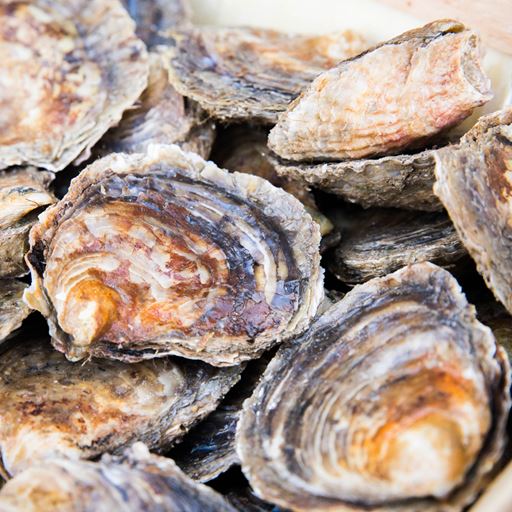Essex estuary to be sanctuary for mother oysters
-
Date
Mon 24 Jun 19

Marine biologists at the University of Essex are part of a conservation coalition tasked with restoring the UK’s largest protected area for native oysters.
The Essex Native Oyster Restoration Initiative (ENORI), led by The Zoological Society of London (ZSL), is creating the region’s first mother oyster sanctuary.
Suffering a 95% decline in population in the last 200 years due to historic overfishing, the oysters’ recovery has been hindered by habitat loss, pollution and the introduction of diseases. Natural replenishment of their native grounds is so limited that human intervention is their only hope.
The project will be based off Mersea Island - the only Marine Conservation Zone (MCZ) in England for native oysters. Essex scientists worked with Essex Wildlife Trust to collect evidence to support the designation of this zone a few years ago.
ENORI – a coalition of oystermen, local communities, the University of Essex, NGOs and the UK Government – have begun creating the habitat required for the mother oyster sanctuary, replenishing the estuary’s lost oysters.
Recycled oyster and cockle shells and stones – known as cultch - have been laid onto the estuary floor, as oysters need a hard surface to grow on, which is not naturally found on the muddy estuary beds in Essex. This is followed by adult females or ‘mother oysters’ being laid, which, when conditions are right, will spawn in the coming weeks, initiating the first stages of the native oyster’s life cycle.
Dr Tom Cameron, from the School of Life Sciences (formerly the School of Biological Sciences), said: “This is a nationally unique project, as around many UK coastlines native oysters are close to extinction and none have stocks of this endangered oyster in the numbers that can still be found in Essex.
“Our research shows they provide benefits to local biodiversity, providing habitat for other species such as edible crab, but it also shows they are declining and need active management to recover the habitats they would have once had throughout the MCZ to allow their distribution and numbers to increase.”
Oyster farming has been recorded in Mersea since Roman times, with the shellfish forming a staple part of British diets throughout history. However, populations of the European native, or Colchester oyster have suffered dramatic declines.
ZSL’s Senior Conservation Programme Manager for UK & Europe, Alison Debney, said: “It may not be glamorous work, but laying ‘mother oysters’ at the right time is vital to the success of the restoration programme, and therefore vital for the survival of this native British species. ENORI was founded in 2013 by the conservation coalition in an attempt to restore a nationally important breeding population that once supported hundreds of fishermen."
Dr Rebecca Korda, Senior Marine Advisor at Natural England, added: “We are thrilled to be part of this collaboration which saw an array of stakeholders coming together and showing incredible innovation and drive to work to restore the native oyster and the native oyster beds back to the Essex waters. This is a hugely exciting and important step in taking this work forward and we are delighted to continue to support and contribute to the project.”
Rachley Langley, Living Seas Co-ordinator at Essex Wildlife Trust, said: “We are thrilled that this exciting project is evolving into its next phase and we have no doubt that the outcome of ENORI’s pioneering restoration work will be extremely positive for the Native oyster population and subsequently the marine ecosystem in Essex.”
ENORI is a joint venture between ZSL, Essex Wildlife Trust, Blackwater Oysterman’s Association, Blue Marine Foundation, the University of Essex, the Nature Conservancy, River Roach Oyster Company, Colchester Oyster Fishery, CEFAS, Natural England, the Environment Agency, and the Kent and Essex Inshore Fisheries Authority (KEIFCA).




